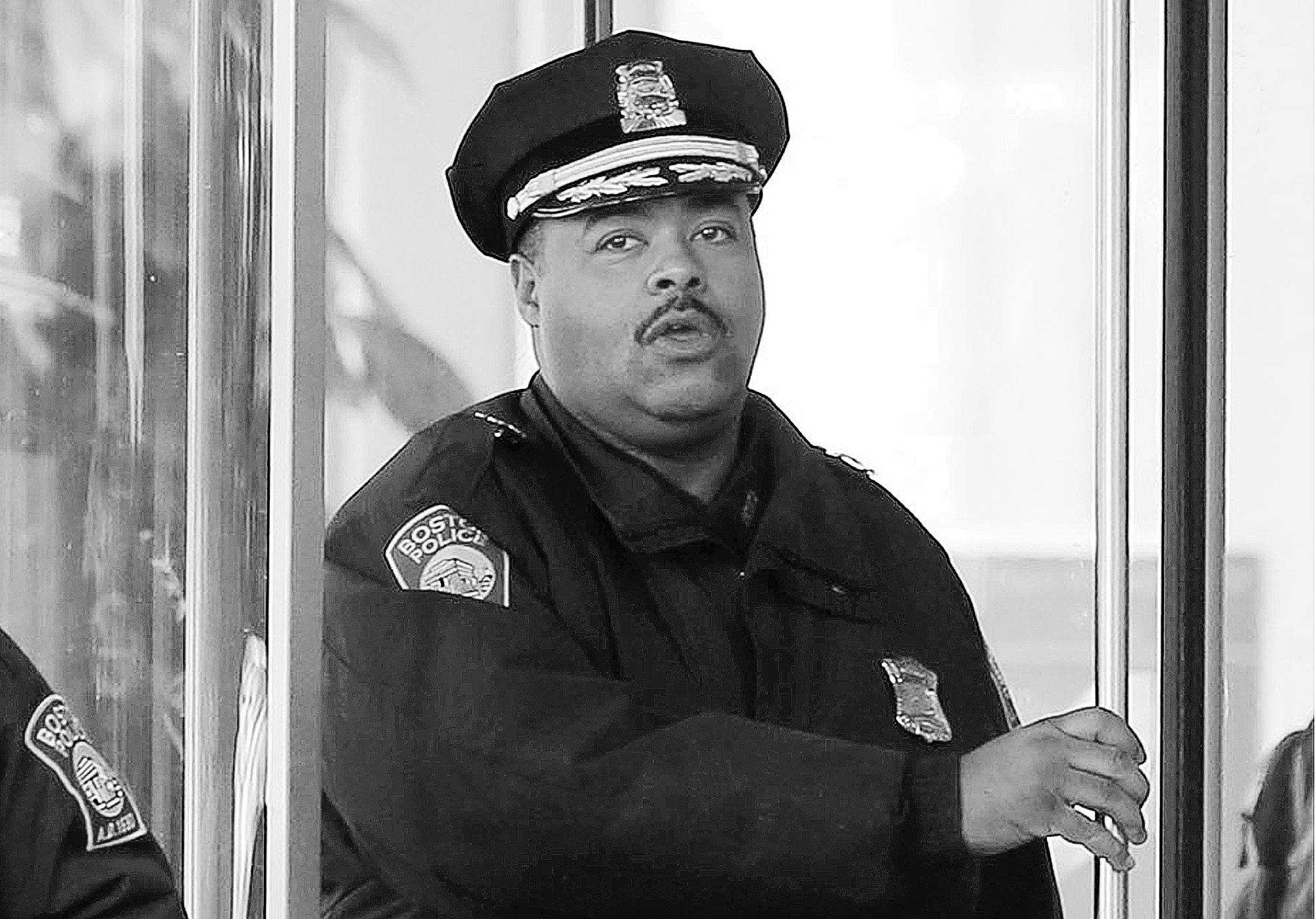
By ALANNA DURKIN RICHER
Associated Press
BOSTON (AP) — A 33-year veteran of Boston’s police force was named the city’s first black police commissioner on Monday, ushering in a new era for a city that long struggled with perceptions of racism. William Gross, who will replace Commissioner William Evans, pledged to continue working to strengthen relationships between police and their communities and combat what he called “senseless youth violence.”
“If you want change, be the change. That’s why I became a police officer,” Gross told reporters after Democratic Mayor Marty Walsh announced his promotion. Evans, who has served as the city’s top cop since 2014, is retiring after nearly 40 years on the force to become police chief at Boston College. Gross, 56, has long been one of the public faces of the department and is well-known in the community. He became a patrol officer in 1985 and worked in the gang and drug control units before becoming night commander in 2012.
He was named the department’s first black superintendent in chief in 2014. “He’s the right person at the right time for this job,” Walsh said. Boston hasn’t seen the violent clashes between police and residents sparked in other cities by the shootings of black men. But activists have long complained the city’s police force is too white. The department faced heavy criticism earlier this year when it posted a Black History Month tweet celebrating the late, former Boston Celtics coach Arnold “Red” Auerbach, who’s white.
Evans later apologized, calling the tweet “insensitive.” And the department came under fire that same month after a widely shared video showed a white officer stopping and questioning a black man who was on his way to a barbershop. Civil rights activists said the confrontation was indicative of the way law enforcement routinely view black men with suspicion. Tanisha Sullivan, president of the Boston branch of the NAACP, said anytime a person of color ascends to a leadership position is a reason for hope.
But she said it will only matter if Gross is given a voice at the table with city leaders and is empowered to lead the department forward. “It’s really not a win unless and until we are able to see evidence to suggest that Chief Gross — now Commissioner Gross — has been able to activate the power of his diversity and we’ll know that by the direction the department goes in.” Evans, a native of South Boston, lost both of his parents at a young age and was raised by his older brothers, one of whom served as police commissioner before him.
He started as a cadet in 1980 and rose through the ranks, eventually becoming superintendent, overseeing special events and the department’s patrol division. He was a key player in the investigation into the marathon bombing that killed three spectators and injured more than 260 others. An avid runner, Evans finished the race before the bombs went off and then returned to help his colleagues in the manhunt for the Tsarnaev brothers. He was named interim commissioner in November 2013 after the resignation of Edward Davis and was appointed to the post permanently in 2014.
Evans had tears in his eyes as he explained it’s time for him to slow down and spend more time with his family. He joked that he’s looking forward to getting more rest, saying he sleeps with one eye open out of fear for a late-night call with bad news. “I never dreamed of the day I would be up here as commissioner,” Evans said. “It’s been a great ride.”



















